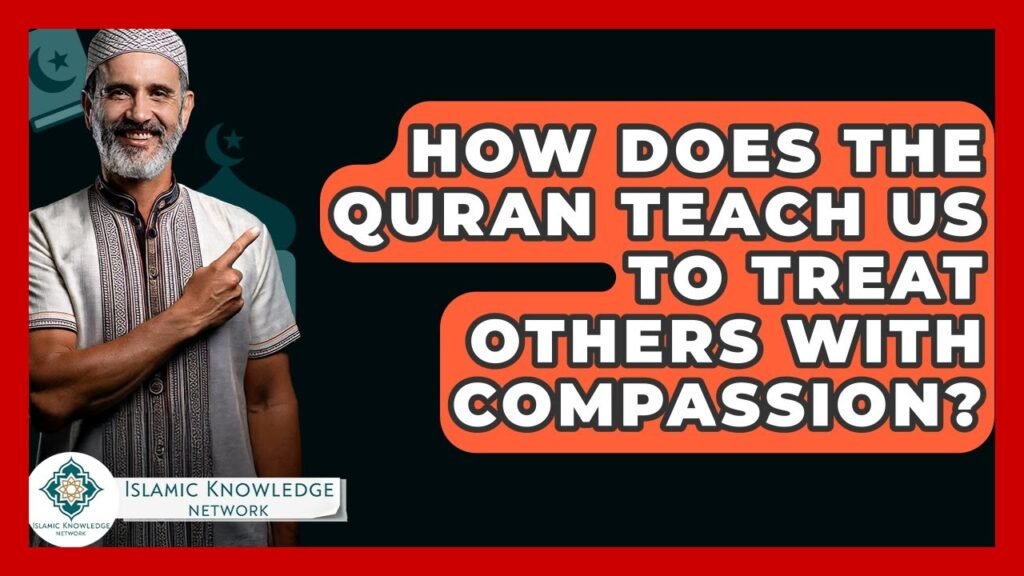Disclaimer:
The content published on this website is provided for general informational purposes only. Articles are generated with the assistance of artificial intelligence and are reviewed periodically; however, accuracy cannot be guaranteed in all cases. Readers are encouraged to verify important information from reliable and authoritative sources before relying on it. The website does not intend to mislead, and any errors found will be corrected when identified.
In a world where compassion often feels in short supply, the teachings of the Quran serve as a profound guide for nurturing empathy and kindness in our interactions with others. Central to Islamic teachings, the Quran emphasizes the importance of treating all individuals with respect and compassion, setting a standard that transcends cultural and social boundaries. By exploring the core verses and messages found within this sacred text, we can uncover the depth of compassion encouraged in everyday life, shaping our character and guiding our relationships.
As we delve into this essential topic, we invite you to reflect on the profound implications of these teachings in your own life. At Airlink Hajj and Umrah, we are dedicated to fostering a deeper understanding of Islamic principles through our carefully curated content. Our blog not only offers insights into the Quran’s compassionate teachings but also keeps you updated on all aspects of Hajj and Umrah, helping you enrich your spiritual journey. Join us as we explore how the Quran inspires us to embrace compassion and kindness, ultimately leading to a more harmonious world.
How Does the Quran Guide Compassionate Treatment of Others?
The Quran, the holy book of Islam, provides profound guidance on how to treat others with compassion and kindness. Central to its teachings is the concept of empathy, urging believers to understand and share the feelings of others. Verses such as Surah Al-Baqarah (2:177) emphasize moral character over mere ritual devotion, highlighting the importance of helping those in need—be it through financial support, emotional encouragement, or community service.
Additionally, the Quran places a strong emphasis on the value of forgiveness and mercy. In Surah Al-Imran (3:134), it encourages believers to exemplify patience and to adopt a forgiving attitude, even in challenging circumstances. This compassionate approach not only promotes harmony within communities but enhances personal spiritual growth, reflecting the core Islamic values of peace and unity.
At airlinkhajjandumrah.com, we believe that the teachings of the Quran extend to all aspects of life, including the sacred journeys of Hajj and Umrah. Our blog provides continuous updates on these spiritual pilgrimages, enabling believers to deepen their understanding of compassion during these important rituals. By embracing the Quranic principles of kindness, we can foster a more inclusive and loving world.
FAQ on How Does the Quran Guide Compassionate Treatment of Others?
-
What principles in the Quran emphasize compassion towards others?
The Quran outlines several principles such as mercy (Rahma), justice (‘Adl), and the importance of treating others with kindness and respect. Verses highlight the value of empathy and assistance to those in need. -
How does the Quran encourage interaction with non-Muslims?
The Quran promotes respectful dialogue and emphasizes common humanity. It encourages Muslims to act with kindness and to seek peaceful coexistence, reinforcing the values of understanding and compassion across differences. -
Are there specific stories in the Quran that illustrate compassionate behavior?
Yes, the Quran contains numerous narratives, such as those of the Prophet Muhammad, who exemplified compassion through his treatment of the poor, the orphaned, and even those who opposed him. These stories serve as models for compassionate behavior.
-
What role does charity play in fostering compassion according to the Quran?
Charity (Zakat and Sadaqah) is a significant aspect of Quranic teaching, stressing the importance of supporting the less fortunate. By giving, individuals cultivate compassion and solidarity within their communities. - How can Quranic teachings on compassion be applied in daily life?
Individuals can embody Quranic compassion by engaging in acts of kindness, practicing forgiveness, helping those in need, and fostering an environment of care within their families and communities. These actions reflect the Quran’s guidance on compassionate living.
Mushu, an experienced Saudi Arabia traveler and writer, shares insightful tips and spiritual reflections to enhance Hajj and Umrah journeys for fellow pilgrims. He has been to Makkah and Madina from 2016 to 2023 many times and his posts will reflect this.







